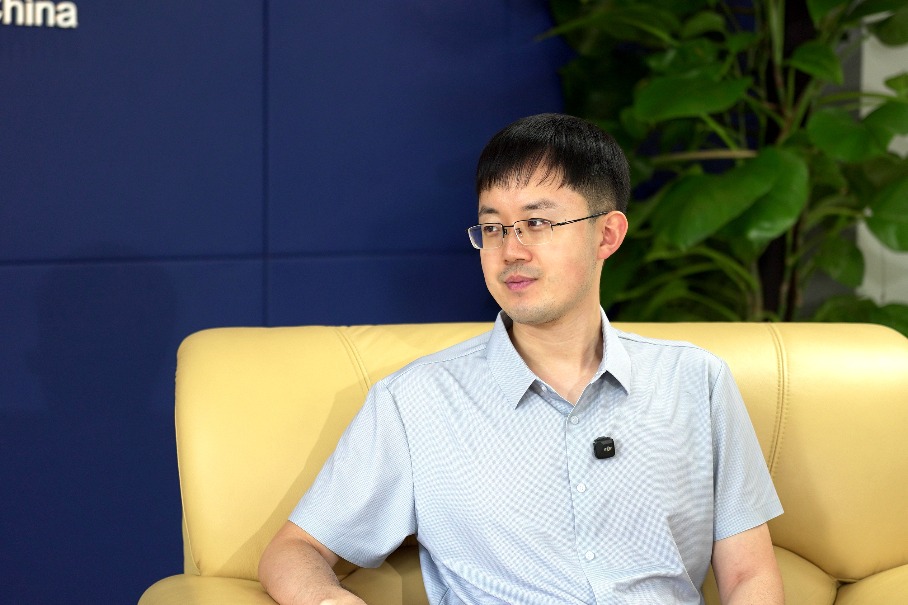Overproduction of excuses for protectionism


Established powers change the rules of the game when they are at a disadvantage, but China will know how to position itself against the hypocrisy of its competitors
In a modern economy, a company's productivity is a key determinant of its success. The higher the productivity, the lower the production costs, the greater the profit margins, and the lower the final price per unit. This is why an innovative company focuses on research, innovation, technology, quality, and product design to enhance its competitiveness in a highly competitive environment. However, a company's competitiveness is not solely determined by its internal factors. It is also influenced by external factors, such as regulations, transport logistics, taxation, labeling, phytosanitary controls, and exchange rates. These exogenous factors can significantly impact a company's ability to compete in the global market.
Yet a company's survival is not solely dependent on its internal capabilities. It is also contingent on the fairness of the international trade environment. Unfortunately, international trade can be manipulated by actions that hinder fair competition. These actions include the imposition of economic sanctions, boycotts, blockades, manipulation of exchange rates, and baseless accusations that tarnish the reputation and suitability of companies. Such unfair trade practices can pose a significant threat to a company's survival, underscoring the need to address protectionism with the multilateral institutions.
This problem is not new. In 1986, Sony founder Akio Morita, in his book Made in Japan, lamented the consequences of the 1985 Plaza Agreement, when the United States forced the appreciation of the Japanese yen and the German mark to reduce the competitiveness of foreign industrial goods in the US market. According to Morita, currency exchange rates should represent the reserves of foreign currencies and also each country's industrial productivity. The more competitive an industrial sector, the lower its production cost per unit and the lower its price in international markets. However, this competitive advantage can be distorted when a partner is forced to overvalue its currency, making the product more expensive in the international market. Therefore, manipulating exchange rates leads to price distortions, harming competitors. In that case, the US government guaranteed its company's artificial competitiveness by raising the prices of imported high tech goods from Japan, Germany, and other countries. This example serves as a stark reminder of the detrimental effects of protectionism on international trade and competitiveness.
Market and rule manipulation can also occur through extraterritorial laws, often issued by the US Department of Justice, such as sanctions imposed on foreign companies and governments. Not long ago, Huawei executive Meng Wanzhou was detained in Canada under an order issued by the US. Previously, Frederic Pierucci, the former director of French company Alstom, was arrested for allegedly violating US competition laws. This episode occurred when General Electric pushed to buy Alstom's electrical equipment division, but the French government resisted the transaction. The acquisition only took place after the release of the French executive. After his release from prison, Pierucci wrote the book The American Trap: My Battle to Expose America's Secret Economic War Against the Rest of the World, which reported several actions by the US Department of Justice against foreign companies to benefit US corporations.
In addition to Huawei, other Chinese companies are being sanctioned by the US for the most varying reasons, but behind all these measures is the attempt to block China's development. Recently, US authorities and the Western media defended protectionist policies under the cloak of "overcapacity" of production in China in several sectors, which could negatively affect industries in other countries. This issue was addressed during US Treasury Secretary Janet Yellen's visit to China in early April. At that time, Yellen raised US concerns about China allegedly flooding global markets with electric vehicles, solar panels and other clean energy products, threatening US jobs.
The US administration's complaints, particularly about EVs and equipment for generating clean energy, need to be contextualized, as these Chinese sectors show exponential growth in their productivity year after year. The development of the clean energy (solar and wind) systems would be unimaginable without taking into account the quality, quantity and price of solar panels and rotors produced in China. Huge clean energy plants in Brazil would be unfeasible without China supplying this equipment.
Regarding the automobile industry, the competitiveness of Chinese companies is unquestionable. The country produced 30.16 million vehicles in 2023 and sold 30.09 million. Exports comprise a small portion (16.3 percent) of output, while imports, consisting largely of luxury vehicles produced in Japan, Germany, Italy and the US, comprise approximately 3 percent. It is worth noting that China's car production represents the combined production of cars in the US, Japan, India and the Republic of Korea.
A large part of Chinese car production is hybrid and electric vehicles, whose quality, technology, and price advantage surpass established competitors. BYD has become the world's largest producer of electric and hybrid cars, surpassing Tesla. Automated tools and economies of scale in producing vehicles for the leading world market guarantee unbeatable competitiveness.
Another recurring argument from the US is that the advantage of Chinese EV companies is derived from government subsidies. These subsidies may have been given at the beginning of the industry's implementation and when innovative activities were riskier, but not now, when dozens of private companies are tightly competing for the market.
When studying world economic history, we see that several companies were established during the creation and development of a new productive sector, intensifying competition, increasing the supply of goods, and leading to a general price drop. But the moment the new technology stabilizes, a consolidation occurs in which only the fittest survive. This process occurs through mergers and acquisitions or the bankruptcy of less competitive companies. This phenomenon has already happened in personal computer production, with the development of internet providers or smartphones, and will occur in the hybrid and EV sector.
The current campaign to discredit Chinese vehicles and accuse the country of flooding the international market with cheap products is just an excuse to justify implementing protectionist measures and prevent fair competition. Established powers try to use their ability to change the rules of a game in which they are at a disadvantage. But China is a sovereign country and will know how to position itself against the hypocrisy of its competitors.
The author is a professor of international political economy at Sao Paulo State University in Brazil. The author contributed this article to China Watch, a think tank powered by China Daily.
The views don't necessarily reflect those of China Daily.
If you have a specific expertise, or would like to share your thought about our stories, then send us your writings at opinion@chinadaily.com.cn, and comment@chinadaily.com.cn.


































